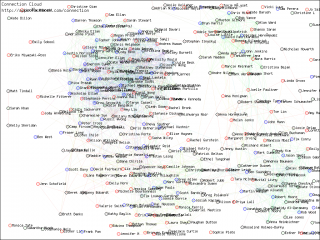
Personal use of encrypted communication is yet another example of so-called ‘network effects.’ (These have been mentioned previously: 1, 2, 3.) The basic idea is that the more widespread certain technologies become, the more useful they are to everyone using them. The most commonly cited examples are telephones and fax machines; back when only a few people had them, they had limited utility. You would need alternative channels of communication and you would waste time deciding which one to use and exchanging instructions about that with other parties. Once telephones became ubiquitous, each one was a lot more powerful and convenient. The same can be said for email addresses.
Good free software exists that allows the encryption of emails at a level where it would challenge major organizations to read them. While this may not protect an individual message that falls under scrutiny, it changes the dynamic of the whole system. It is no longer possible to filter every email passing along a fibre-optic cable for certain keywords, for instance. You would need to crack every one of them first.
Making the transition to the routine use of encryption, however, requires more effort than the adoption of telephones or email. While those technologies were more convenient than their predecessors, encryption adds a layer of difficulty to communication. You need to have the required software, key pairs generated, and passphrases. It is possible to make mistakes and encrypt things such that you can never access them again.
As such, there is a double barrier to the adoption of widespread communication encryption: people must deal with the added difficulties involved in communicating in this way and with the problem that hardly anyone uses such systems now. If there is nobody out there with whom you can exchange PGP encrypted messages, you aren’t too likely to bother with acquiring and using the software. It is entirely possible that those two constraints will prevent widespread adoption for the foreseeable future.
One nice exception to this rule is Skype. Users may not know it, but calls made over Skype are transmitted in encryption form, very considerably increasing the difficulty of intercepting them. The fact that users do not know this is happening greatly increases the level of usage (you cannot avoid using it). While such systems may well not be as secure as explicit encryption efforts undertaken by senders and recipients, they may be a useful way to increase overall adoption of privacy technology. Such ‘invisible encryption’ could also be usefully incorporated into stores of personal data, such as the contents of GMail accounts.
PS. For anyone who decides to give PGP a try, my public key is available here.





